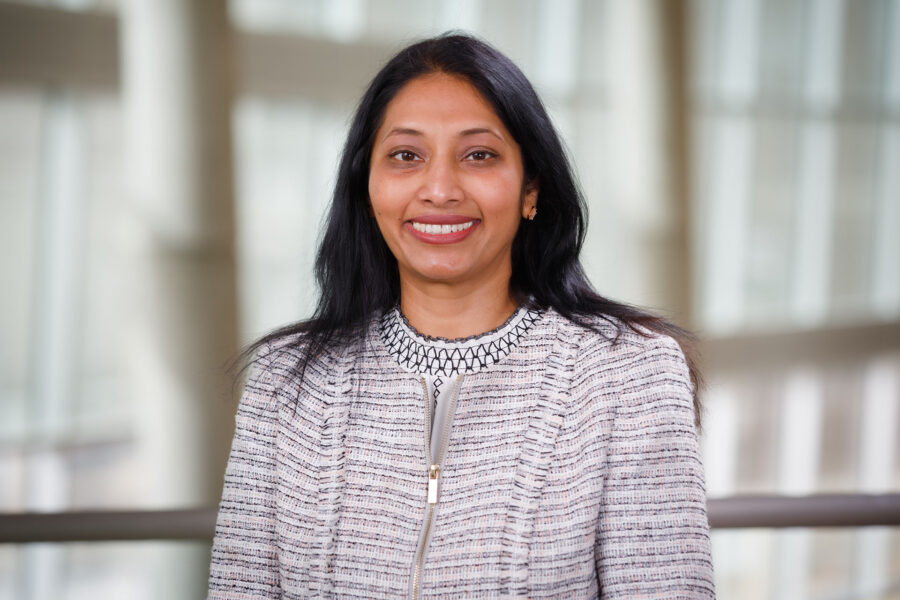This profile is part of a series to highlight the researchers who will be honored at a ceremony on March 9 for UNMC’s Scientist Laureate, Research Leadership, Distinguished Scientist, New Investigator and Community Service to Research Award recipients.
Distinguished Scientist
The Distinguished Scientist Award — which is sponsored by the chancellor — recognizes researchers who have been among the most productive scientists at UNMC during the past five years.
- Name: Sowmya Yelamanchili, PhD
- Title: Associate professor, UNMC Department of Anesthesiology
- Joined UNMC: 2009
- Hometown: Hyderabad, India
Please describe your research focus in three words or less: Substance abuse disorder, infectious diseases and stem cell biology
What is the goal of your research?
Research in my lab aims to understand how synergy of substance use disorders and HIV infection lead to neurocognitive deficits. We are actively engaged in decoding molecular mechanisms that contribute to altered brain function including identifying novel biomarkers and employ several model systems cf. human biospecimens, in vivo (rodent) and in vitro (stem cells, primary cells and cell lines). Recently, we have forayed into a novel model system – brain organoids or “mini brains” that encapsulate several features of the brain and lend more depth to analyze brain function changes during disease manifestation.
My research will make a difference because:
Substance use disorder is a complex condition associated with uncontrolled use of illicit and licit drugs that can impact brain function. Moreover, it increases the risk of contracting infectious diseases such as HIV. HIV-positive individuals with a history of SUD cf. methamphetamine, a potent psychostimulant, are more susceptible to experience exacerbated neurological outcomes, as well as accelerated aging. Factors contributing to these outcomes still are not well understood. My research using novel model systems, such as brain organoids derived from inducible pluripotent stem cells, lends a distinct advantage. This innovative and tractable model system will help decode mechanisms contributing to brain dysfunction during HIV and drug abuse synergy, including designing and developing novel therapeutic interventions.
The best advice I’ve ever been given is:
“Success is not final; failure is not fatal: It is the courage to continue that counts.”
Three things you may not know about me are:
- My last/family name “Yelamanchili” (now I have a moniker “Dr .Y”) is actually the name of my beautiful ancestral village, situated along the second longest river of India, Godavari.
- When I am not doing research, I love to listen to spiritual podcasts, cook and watch Indian movies with family.
- Taking a long stroll (of course, not during winter) and meditation are my stress busters.

Congratulations Sowmya💐.
Congratulations on the award, Sowmya!
Congratulations!
Congratulations, Sowmya! Well done!
Congratulations !
Congratulation!
CONGRATULATIONS DR. YELAMANCHILI! Well Deserved Recognition!
Congratulations Sowmya.
Outstanding Sowmya! Very well deserved. You are doing amazing work.
Congratulations Sowmya..Very Happy ..wishing all good wishes 🌷
Congratulations to you Sowmya. Very happy for your success. And you are a great cook. Wish you the best.
Congratulations, Sowmya!
Congratulations Soumya !!! 👏 Gr8 to hear the news.